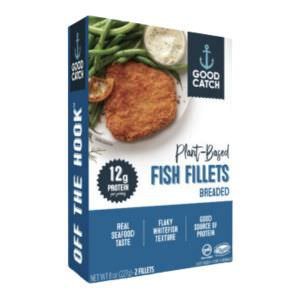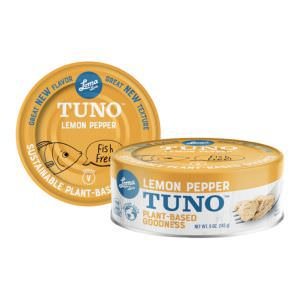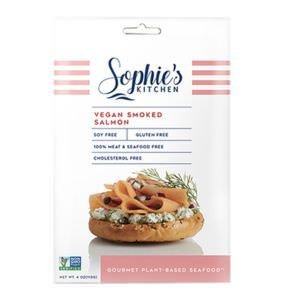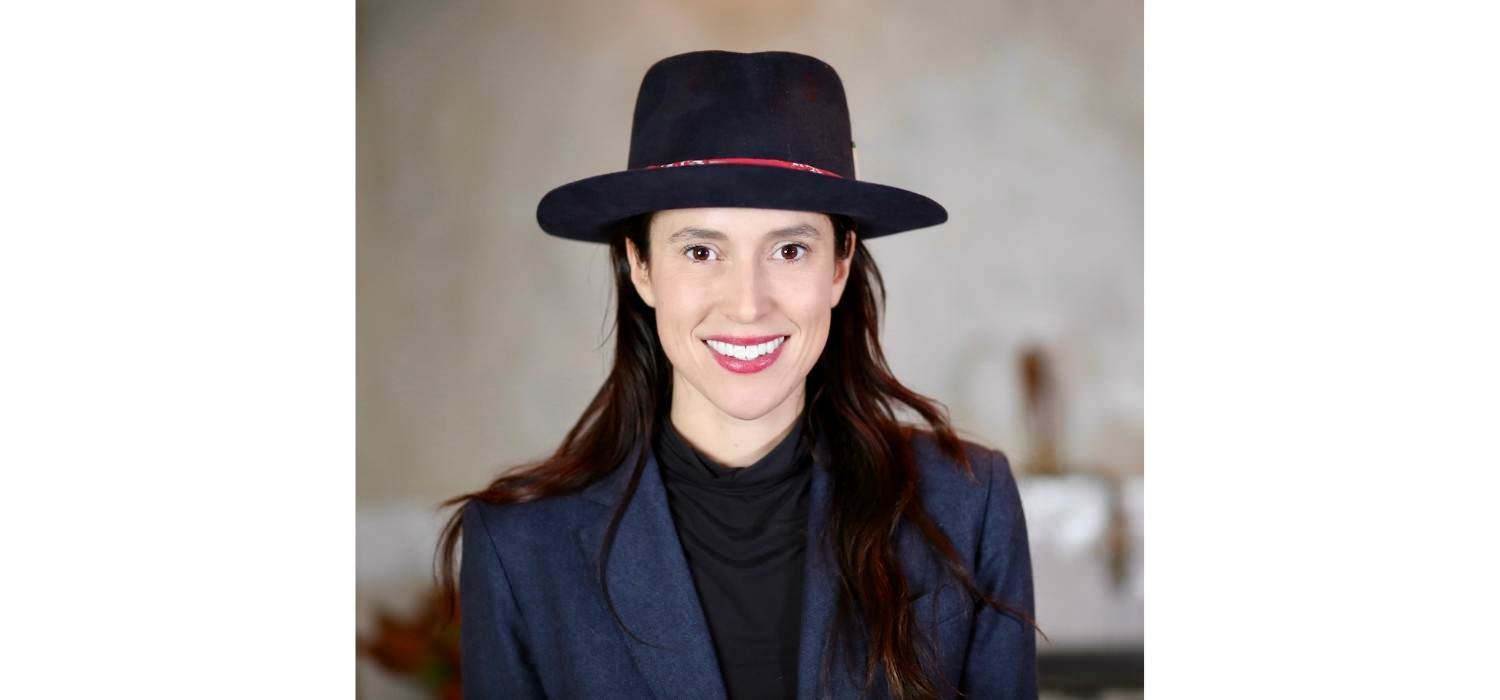Do Vegans Eat Fish and Seafood?
Even those who aren't vegan and don't intend to be can benefit from having a basic understanding of what this term means. There is a growing number of individuals joining the vegan movement every day, so we all may eventually gain a vegan friend, coworker, or family member. In this case, learning a few things about the movement shows you care and are willing to respect their beliefs.
However, if you're wondering, "Do vegans eat fish?" or even "Do vegans eat fish and eggs?", you may be confusing veganism with vegetarianism. So, let's clear up what veganism truly means, shall we?
What Is Veganism?
In the most basic terms, those who've adopted a vegan lifestyle aim to avoid all animal products and byproducts, to whatever extent they can. Veganism is an animal rights movement, so they do this specifically for ethical reasons. If not, they would not be qualified necessarily as vegans, but possibly as plant-based dieters or strict vegetarians.
Despite what most may think, all vegans have a limit as to how strict their vegan lifestyles are. This is simply because it's usually impossible to eliminate all animal products from our modern lives. Everyday items like car seats, musical instruments, medications, chewing gum, toys, toothpaste, batteries... can all contain animal derivatives.
So, for vegans, our main goal is to do our personal best to avoid contributing to the exploitation of animals for food or other uses. As an extension, we try to promote the use of animal-free alternatives to show others how easy and accessible the lifestyle can be.
Do Vegans Eat Fish?
Now that you know what veganism is in a nutshell, what animal products do vegans avoid? The answer is, those following an ethical vegan lifestyle quite literally avoid all animal products, whenever possible. Or at least they make their most sincere effort to do so!
This includes fish, seafood, eggs, dairy, honey, additives that are derived from or frequently tested on animals, and any other ingredients that could directly or indirectly support animal exploitation. However, it's not so much about following a set of rules, but simply about having the practical intention and goal to reduce animal suffering.
Why Do Vegans Avoid Fish?
If it's the first time you've heard of this idea, you may find it a bit silly. That's because most of us have been eating fish since we were little, and don't necessarily empathize with these cold, scaly creatures that seem so foreign to us.
While this is understandable, it's never too late to learn about the sentient beings we share this world with, and how our daily choices affect them. If you don't see yourself ever feeling sorry for fish and other marine animals used for food, you may still be concerned about the future of our planet. Let's review how industrial fishing can affect our environment!
Overfishing Stats We Should All Know About
Were you familiar with the following stats?
Research indicates that if our current overfishing trends continue, nearly all seafood and fish stocks could collapse by 2050 (90% depleted). This means we could see fishless oceans within our lifetimes.
Over 300,000 cetaceans, 100 million sharks, 250,000 turtles, and 300,000 seabirds die from entanglement in fishing nets each year.
Over 34% of fisheries are currently overfished.
While you may not be on board with vegans' idea that fish could feel pain, these stats are still quite significant for the future of our planet. So, perhaps they'll encourage you to understand and support vegans' efforts to save the fish. But on the topic that fish may feel pain, let's check out the data on this next!
Do Fish Feel Pain?
For most vegans, it's not a question of whether or not these animals feel pain, but rather, whether or not they want to live. Vegans believe that all animals deserve to live complete and natural lives, undisturbed by humans, and fish are not an exception. That said, there is an increasing amount of data that indicates that fish do in fact feel pain.
In fact, there are more reasons to believe that fish feel pain, than there are reasons to believe that they don't. For instance, fish are vertebrates and have a central nervous system. Their CNS is made up of a spinal cord and brain, and it receives signals from their peripheral nervous system. So, they have all the tools to feel pain and suffer, that we and other mammals do. They are able to detect and avoid harmful events, and react immediately to nociception, the same way we may flinch or yelp when pinched.
There is no concrete evidence, and we may never know what it's like to be a fish and suffer the way they do. However, because of this, we believe it's safer to assume that they do in fact feel pain, just in case! After all, if we can avoid the mass suffering of thousands of species exploited by the fishing industry, why not give it our best effort?
Why Do Vegans Avoid Seafood?
Yes, vegans also avoid seafood. Why is that? After all, fish may have a brain and a central nervous system, but most invertebrates do not. So, they may not suffer at all, right?
Do Invertebrates Feel Pain?
Bivalve mollusks, like scallops, oysters, and clams, have ganglia and sensory organs that fulfill the basic functions of a CNS. In fact, some scientists affirm that scallops specifically have a complex central nervous system. The science behind this is quite interesting, and we encourage you to read more on this here.
A Life Worth Protecting
However, as for the reason that vegans avoid seafood even though they may not feel pain, it's simply because of the main point we'd mentioned earlier. Animals consumed as 'seafood' fight to live. This means they have a desire to experience all that life has to offer them. Their lives are valuable to them, and worth protecting. So, vegans believe they have the right to live without being disturbed by forces outside of their natural food chain.
This could be considered especially valid due to the fact that they are not our primary food source; it's typically quite easy to cut them out of our diets without suffering any negative health consequences.
How Do Vegans Get Omega-3 Fatty Acids?
On the topic of health, you may be wondering, "If vegans don't eat fish, how do they get enough omega-3s?"
Firstly, omega-3 fatty acids are not considered essential nutrients. However, many studies suggest that we do still need to consume them in our diets to get a sufficient amount. Experts indicate that just two servings of fatty fish per week can give us an adequate amount of omega-3s. But, does it have to be in the form of fish?
The thing is, fish don't produce omega-3s on their own. So, where do they come from originally? It turns out they actually get them from a plant; marine algae, to be exact!
While flaxseeds, chia seeds, walnuts, and hemp seeds all contain adequate amounts of ALA omega-3s to support our daily requirements, this may not be enough. ALAs need to be converted into DHA and EPA in our bodies to be of any use to us. However, by consuming an algae-based omega-3 supplement as well, we can obtain direct, preformed DHA and EPA, without harming any fishies.
So, it's recommended that vegans consume omega-3s in the form of both ALAs, and DHA and EPA from algae oil.
What Do Vegans Eat?
After discussing what vegans don't eat, you're probably wondering, "Do they eat anything at all?" If you want a full breakdown on the immense variety of foods that plant-based eaters munch on throughout their lifetimes, check out our complete article on what vegans eat here. Otherwise, keep reading for a quick summary.
All Plant-Based Foods
Many vegans can attest to the fact that when after going vegan, people typically discover hundreds of foods they'd never heard of before. So, while some may suspect that vegan diets are restrictive and depressing, we know that it's actually the exact opposite!
The standard American diet includes corn, wheat, beef, chicken, fish, pork, seafood, eggs, dairy, potatoes, peas, beans and perhaps the occasional handful of fruits and veggies. Meanwhile, plant-based diets include all plant foods, and motivate us to learn about those we haven't yet tried. Most vegans will agree that they'd never heard of nutritional yeast, seitan, tempeh, sauerkraut, dulse flakes, wakame, Irish moss, kombucha, and even certain exotic fruits and veggies before making the switch.
We enjoy all plant food categories, including vegetables, fruits, seeds, nuts, legumes, grains, herbs, and spices. There are over 2,000 types of edible fruits, 1,000 types of edible vegetables, 21 types of edible grains, 16,000 types of legumes, dozens of edible nuts, countless varieties of edible seeds, and over 200 spices.
So, plant-based diets do not lack variety, and provide us with all of the nutrients we need; there's even a natural plant-based vegan source of B12! While some nutrients are more easily obtained via supplementation, plants do seem to provide us with everything we need in variable amounts and qualities.
Can You Be Vegan and Still Eat Fish?
Although some vegetarian diets (like the pescatarian diet) include fish, eating animals goes directly against vegan beliefs. Some argue that the original definition of veganism is very flexible and takes each individual's specific needs and resources into account. The thing is, fish is not typically a food people require. This is often especially true of those who live in developed countries and enjoy a steady income.
Those who live in impoverished fishing communities in developing countries, for example, may rely on fish and seafood to survive. There's no denying that a vegan lifestyle may seem totally inaccessible to these individuals. However, most of us would agree that in survival situations, our top priority would not be to evaluate our own ethical beliefs or to feel accepted within a specific ethical group.
Likewise, a lifelong vegan who finds themselves on a deserted island (however unlikely that may be) could eat animals to avoid starvation. In these cases, we do whatever we can to survive. So, rather than considering extreme hypotheticals, we believe it's best to evaluate what we can each do personally to help the animals.
The Bottom Line
Being vegan is a commitment to a specific belief system, and we believe that if you are upholding this belief with your actions, and making your most sincere effort to do so, you are undeniably vegan.
Most Popular Vegan Fish Substitutes to Try!
If you want to more easily cater to the vegans in your life, or you've been plant-based with the exception of fish and want to take the leap into a fully vegan diet, try these delicious swaps!








